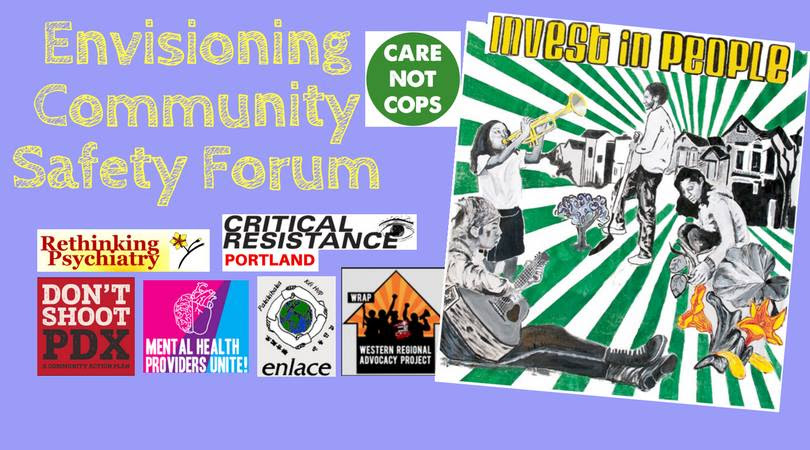
We know that policing does not make us more safe. Policing endangers and criminalizes our communities. Encounters with police are the entry point to incarceration, detention and deportation, and death for too many Black and brown people–not just nationwide, here in Portland. Yet, our city is trying to increase the amount of money it spends on policing this year by $6.7 million, and hire 58 more officers. That $6.7 million for new police will come out of budgets for services that our communities need to thrive and live in dignity: childcare, housing, parks. We want to envision what safety beyond policing means for our communities. To do that,
Enlace is coordinating with the Care Not Cops campaign to stop this increase in police funding.
There are 3 big ways you can join us to stop this police budget increase!
First,
! This forum, hosted by Critical Resistance Portland and the Care Not Cops – Mental Health Care Not Policing community campaign, is an opportunity to build with people and organizations working in health, mental health, social justice, and community needs, as well as against the violence of policing and imprisonment. Come share your experience and your vision, and demand changes in policing practices and budget allocations from current Portland council members and candidates for office.
Then, you can mobilize with us to share your story and opinion with city council on why we don’t need more cops. There are two times we’re turning out: on Thursday, May 10th from 6-8pm at City Hall for a community budget hearing, and on Wednesday, May 16th at 2pm at City Hall when city council will vote on whether to approve the budget.
Let us know if you’re interested in sharing your story about why we need that $6.7 million in our communities and not cops pockets. We’ll help you prepare to testify to city council.
If you can’t join us for the forum or at City Hall, you can still share your demands for Care Not Cops with the city by submitting a comment online.
We’re excited to be building with you all towards a vision of safety where we have our needs met and where we, not police, define what safety look like.
Recent Comments